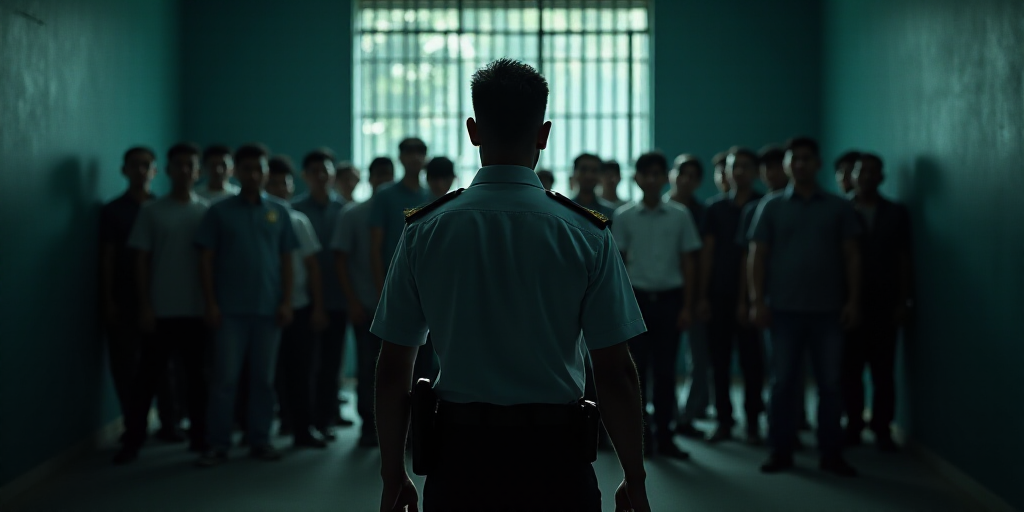Background on the Situation
In recent months, El Salvador has faced a significant challenge as it grapples with the deportation of Venezuelans from the United States. These deportees, many of whom were apprehended during a US crackdown on illegal immigration, have been housed in a large-scale detention facility known as the “megaprison.” This prison, designed to hold gang members, has become an improvised detention center for the influx of Venezuelans.
Who are the Venezuelans in El Salvador?
The Venezuelans in El Salvador are individuals who fled their home country due to the ongoing political and economic crisis. Many sought better opportunities in the United States, only to be deported back to Central America. The majority of these deportees are from the lower-income classes, with limited resources and struggling to adapt to their new circumstances.
Why is the Megaprison Relevant?
The megaprison, officially called the “Temporary Detention Center for Foreigners” (CTDF), was initially built to hold gang members and prevent them from reoffending. However, with the sudden increase in Venezuelan deportees, the facility has been repurposed to accommodate this new population. The conditions within the prison have raised concerns about the well-being and rights of these individuals.
The Families’ Plea for Information
Last Friday, relatives of the deported Venezuelans attempted to visit their loved ones at the megaprison, hoping for reassurance that they were safe and well. Unfortunately, the government of President Nayib Bukele denied their requests, leaving families in the dark about the conditions and whereabouts of their detained relatives.
Timeline of Events
- Relatives gather at the megaprison, hoping to see their detained family members or receive proof of their well-being.
- The Bukele administration refuses to grant access, citing security concerns.
- Families express frustration and disappointment, as they have not been able to communicate with their detained relatives for nearly three months.
Impact on Families and Community
The inability of families to visit or receive information about their detained relatives has caused immense distress and uncertainty. Many Venezuelans in El Salvador rely on remittances sent by family members working abroad. The sudden loss of this income source, coupled with the emotional toll of not knowing their loved ones’ status, has left these families in a precarious situation.
Community Response
Local and international human rights organizations have condemned the Bukele administration’s decision, calling for transparency and respect for the rights of detainees. These groups have urged the government to find alternative solutions that balance security concerns with the fundamental rights of individuals.
Key Questions and Answers
- Who are the Venezuelans in El Salvador? They are individuals who fled Venezuela due to the country’s political and economic crisis, seeking better opportunities in the United States but ultimately being deported to Central America.
- What is the megaprison? The Temporary Detention Center for Foreigners (CTDF) is a large-scale detention facility in El Salvador initially designed to hold gang members. It has been repurposed to accommodate Venezuelans deported from the United States.
- Why did families want to visit the megaprison? Families sought reassurance that their detained relatives were safe and well, as they had not been able to communicate with them for nearly three months.
- What was the government’s response? The Bukele administration denied families’ requests to visit, citing security concerns.
- What is the impact on families and the community? The inability to visit or receive information about detained relatives has caused immense distress, uncertainty, and financial hardship for Venezuelan families in El Salvador.






